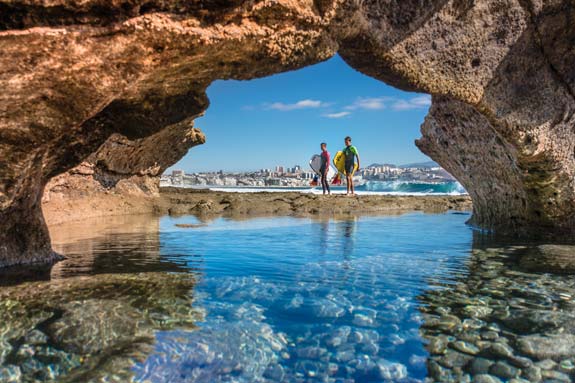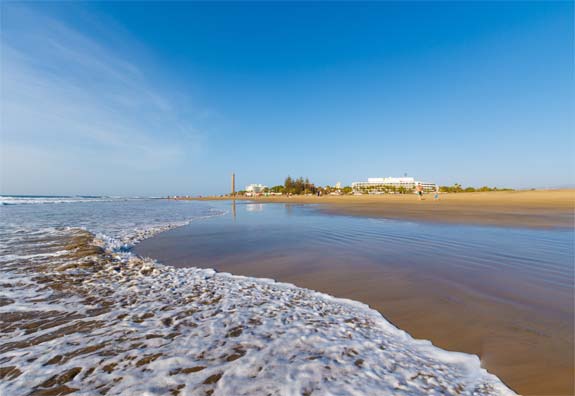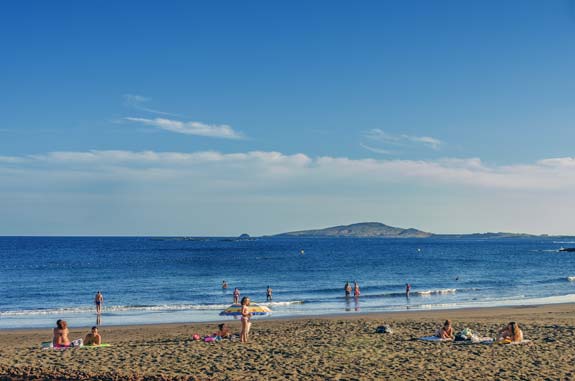First International Conference on
Innovation in Tourism Systems, Intelligent Gamification and User Interaction
( ITSIGUI 2019 )
:: Las Palmas de Gran Ganaria – Spain ::
October 1 – 2, 2019
| Home |
| Topics |
| Important Dates |
| Paper Submission |
| Organization |
| Program |
| Registration |
| Publications |
::. BBK .::
Birkbeck University of London
UK
::. CNR - IMM .::
National Research Council
Italy
::. FUN .::
Future University Hakodate
Japan
::. IIMROHTAK .::
Indian Institute of Management Rohtak
India
::. ITB .::
Institute of Technology Bandung
Indonesia
::. KETTERING .::
Kettering University
USA
::. KNU .::
Kainan University
Taiwan
::. LEEDS .::
University of Leeds
UK
::. MCU .::
Ming Chuan University
Taiwan
::. METU .::
Middle East Technical University
Turkey
::. MJU .::
Myongji University
South Korea
::. MSU .::
Moscow State University
Russia
::. NUU .::
National United University
Taiwan
::. NYC .::
New York University
USA
::. POLITO .::
Polytechnic University of Turin
Italy
::. PURDUE .::
Purdue University
USA
::. QUT .::
Queensland University of Technology
Australia
::. TSINGHUA .::
Tsinghua University
China
::. U-AIZU .::
University of Aizu
Japan
::. UAI .::
Interamerican Open University
Argentina
::. UBA .::
University of Buenos Aires
Argentina
::. UC .::
University of Cincinnati
USA
::. UCC .::
University College Cork
Ireland
::. UCM .::
Complutense University
Spain
::. UCOL .::
University of Colima
Mexico
::. UCR .::
Universidad de Costa Rica
Costa Rica
::. UHK .::
University of Hong Kong
China
::. UIOWA .::
University of Iowa
USA
::. ULB .::
Free University of Brussels
Belgium
::. UM .::
University of Malta
Malta
::. UMD .::
University of Michigan-Dearborn
USA
::. UNC .::
National University of Córdoba
Argentina
::. UNIGE .::
University of Genoa
Italy
::. UNILJ .::
University of Ljubljana
Slovenia
::. UNIMIB .::
University of Milano-Bicocca
Italy
::. UNIST .::
University of Split
Croatia
::. UNIVE .::
Ca' Foscari University of Venice
Italy
::. UOC .::
University of Creta
Greece
::. UofO .::
University of Ottawa
Canada
::. UOI .::
University of Ioannina
Greece
::. UPR .::
University of Puerto Rico
Puerto Rico
::. US .::
University of Sevilla
Spain
::. USC .::
University of Southern California
USA
::. UWI .::
University of the West Indies
Jamaica
::. VMMI .::
Virtual Maastricht McLuhan Institute
the Netherlands
::. VUA .::
Vrije Universiteit Amsterdam
the Netherlands
::. WASEDA .::
Waseda University
Japan
::. WSU .::
Wayne State University
USA
HOME |
|
Topics, Deadlines and Program Committee 1. Topics New spaces are emerging for constructive reflection in the context of social and technological research fostered by the rise of the democratization of access to online information in the process of convergence of the different disciplines of human knowledge.The present conference is one example of them. In this event we pay special attention to multimedia mobile communication that has made the possibility available to millions of users to instantly access information related to tourism and its main components, such as the cultural and natural heritage, among others, of thousands of places, scattered far and wide, of our planet. In addition, the uninterrupted progress of the new technologies and the tourism industry require intercultural content that intelligently adapts to the potential recipients and generators of positive trends in social networks. In this creative stage, education has a priority role, as it continues to be one of the mainstays of culturally developed communities, as evidenced by recent history, together with the evolution of civilizations, regardless of temporal and spatial space. In our days, educational creativity finds in gamification a learning technique that continues with the precepts formulated in the 20th century with learning by playing. In this sense, gamification, understood as a mechanics of games in the educational-professional field, opens new fields for study and research to achieve better results, together with the requirements of users of intelligent interactive systems in the new millennium. Therefore, this is an ideal environment for all people who want to present the results obtained in the application of software and hardware, in a thriving and progressive triad, such as the tourism industry, gamification applied to education, and the design of interactive contents for end users of the latest generation of multimedia systems, intelligent or not. The main areas of the conference are listed below. Finally, the main topics that have been listed do not mean a limitation to present other topics, which can enrich and enhance the current vision. As well as the possible new horizons that can be opened for the future in the short, medium and long term. Many conferences are focussed on specific aspects of tourism, gamification, learning, computer science, interfaces, user experiences, artificial intelligence, etc. and bring together leading experts in a particular field or sometimes on a specific technology. At such large conferences students are often marginalized or relegated to poster sessions. Our workshops, symposia, etc., are not a big scale and aim to promote dialogue between established professors and graduate students working on new directions. Hence topics from the whole range of artificial intelligence, big data, communicability, computer science, cultural heritage attraction, database and business intelligence, ecotourism, gamification design, human-computer interaction, information retrieval and data mining, learning analytics, ludification, machine learning, marine and coastal areas tourism, mobile computing, new technologies, serious games, software quality, tourism industry, etc. are welcomed. Last year’s workshops, symposia, etc., organized by ALAIPO and AInCI, for instance, included papers, research-in-progress, etc., on the topics (see below the alphabetical order). All contributions –papers, research-in-progress, workshops, demos, posters and doctoral consortium, should be of high quality, originality, clarity, significance and impact. In the current international conference it is demonstrated how with a correct integration among professionals of formal and factual sciences interesting research lines in the following subjects: Augmented Reality, Big Data and Gamification, City Tourism, Communicablity, Computer Graphics, Design, Education, Entertainment Computing and Edutainment, Game-Based Learning, ICT, Interfaces, Methodologies, Multimedia Systems, Preservation of Cultural Heritage, Rural Tourism, Software Engineering, Tourism and Technology, User Studies, UX, and other computational areas are solicited on, but not limited to (alphabetical order): Computer Science and Tourism :: Climate Change and Tourism Impact Intelligent Gamification :: Games and Computer Graphics User Interaction :: Assessing Personal Abilities through Mobile Multimedia Systems All submitted papers will be reviewed by a double-blind (at least three reviewers), non-blind, and participative peer review. These three kinds of review will support the selection process of those that will be accepted for their presentation at the international conference. Authors of accepted papers who registered in the conference can have access to the evaluations and possible feedback provided by the reviewers who recommended the acceptance of their papers, so they can accordingly improve the final version of their papers. Best regards, Francisco V. Cipolla Ficarra (Chair - coordinator) ALAIPO: Asociación Latina Interacción Persona-Ordenador –Latin Association of HCI (www.alaipo.com) and AINCI: Asociación Internacional de la Comunicación Interactiva –International Association of Interactive Communication (www.ainci.com). Address: Via Tabajani 1, S. 15 (7) - 24121 (Bergamo) Italy :: c/ Angel Baixeras, 5 - AP 1638 - 08080 (Barcelona), Spain. Email: info@alaipo.com :: info@ainci.com P.S. If you wish to be removed from this mailing list, please send an email to info@ainci.com or info@alaipo.com with "remove" in the subject line. Thanks.
2. The events have the following deadlines: Works Submissions: Closed.
3. Program Committee: - Francisco V. Cipolla Ficarra (chair - coordinator) Demo Session, Poster Session, Workshop Session, Parallel Session, Research in Progress and Doctoral Consortium: Anna Parodi. University of Genoa (Italy), Danny Barrantes. University of Costa Rica (Costa Rica), Silvia Poncio. Interamerican Open University (Argentina), Wen-Yuan Jen. National United University (Taiwan), and Miguel C. Ficarra. AInCI and ALAIPO (Italy & Spain). Honorary Committee: :: Derrick de Kerchove. University of Toronto (Canada) Scientific Committee: :: Alejandro Frangi. University of Leeds (UK)
|
|
| © 1997 - 2019 ALAIPO & HCI Lab | ||||
|---|---|---|---|---|































